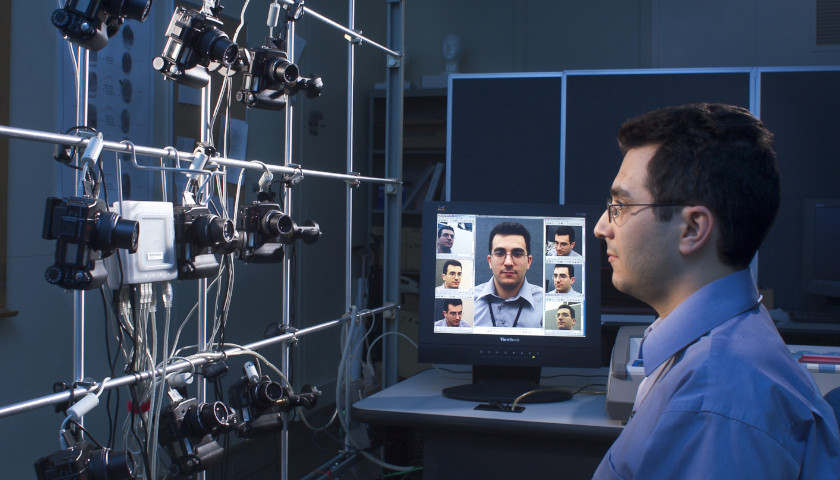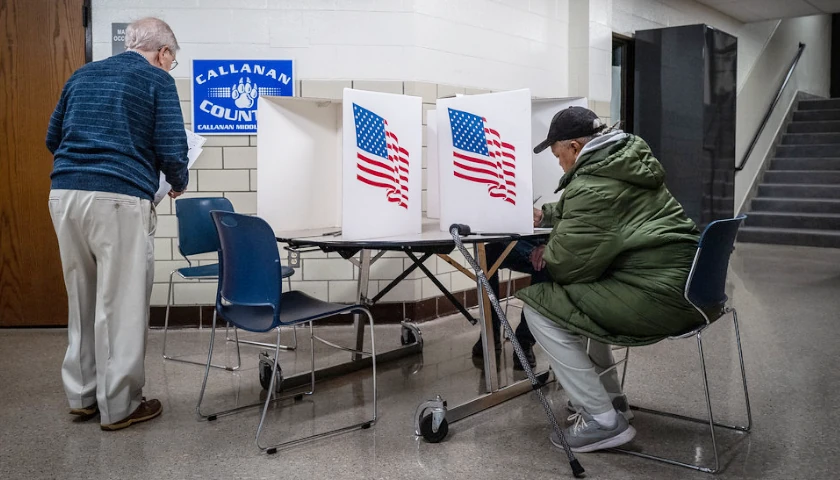by George Rasley, CHQ Editor
In a dystopian future envisioned by some of science fiction’s greatest authors, mankind is ruled not by elected leaders or by warlords who came to power through victory in battle. Instead, humans have become the virtual slaves of soulless totalitarian corporations that vie with each other for control of resources and populations.
If you think that bizarre form of fascism is impossible or so unlikely to succeed that you don’t have to worry about it consider the following developments reported by Mike Elgan for FastCompany.com.
Mr. Elgan reports that Communist China’s social credit system, a technology-enabled, surveillance-based nationwide program designed to nudge citizens toward better behavior is increasingly being copied by American tech companies and social media platforms.
The ultimate goal of the Chinese Communist system is to “allow the trustworthy to roam everywhere under heaven while making it hard for the discredited to take a single step,” according to the Chinese government.
In place since 2014, Mr. Elgan reports the social credit system is a work in progress that could evolve by next year into a single, nationwide point system for all Chinese citizens, akin to a financial credit score. It aims to punish for transgressions that can include membership in or support for the Falun Gong or Tibetan Buddhism, failure to pay debts, excessive video gaming, criticizing the government, late payments, failing to sweep the sidewalk in front of your store or house, smoking or playing loud music on trains, jaywalking, and other actions deemed illegal or unacceptable by the Chinese government.
Punishments can be harsh, says Elgan, including bans on leaving the country, using public transportation, checking into hotels, hiring for high-visibility jobs, or acceptance of children to private schools. It can also result in slower internet connections and social stigmatization in the form of registration on a public blacklist.
Many Westerners are disturbed by what they read about China’s social credit system. But such systems, it turns out, are not unique to China.
Mr. Elgan reports a parallel system is developing in the United States, in part as the result of Silicon Valley and technology-industry user policies, and in part by surveillance of social media activity by private companies.
Here are some of the elements of America’s growing social credit system found by Mike Elgan:
The New York State Department of Financial Services announced earlier this year that life insurance companies can base premiums on what they find in your social media posts.
The use of social media is an extension of the lifestyle questions typically asked when applying for life insurance, such as questions about whether you engage in rock climbing or other adventure sports. Saying “no,” but then posting pictures of yourself free-soloing El Capitan, could count as a “yes.”
A company called PatronScan sells three products—kiosk, desktop, and handheld systems—designed to help bar and restaurant owners manage customers. PatronScan is a subsidiary of the Canadian software company Servall Biometrics, and its products are now on sale in the United States, Canada, Australia, and the United Kingdom.
PatronScan helps spot fake IDs—and troublemakers. When customers arrive at a PatronScan-using bar, their ID is scanned. The company maintains a list of objectionable customers designed to protect venues from people previously removed for “fighting, sexual assault, drugs, theft, and other bad behavior,” according to its website. A “public” list is shared among all PatronScan customers.
Judgment about what kind of behavior qualifies for inclusion on a PatronScan list is up to the bar owners and managers. Individual bar owners can ignore the ban, if they like. Data on non-offending customers is deleted in 90 days or less. Also: PatronScan enables bars to keep a “private” list that is not shared with other bars, but on which bad customers can be kept for up to five years.
PatronScan does have an “appeals” process, but it’s up to the company to grant or deny those appeals. So someone who’s banned by one bar in the U.S. is potentially banned by all the bars in the U.S., the U.K., and Canada that use the PatronScan system for up to a year.
You can [also] be banned from communications apps, too. For example, you can be banned on WhatsApp if too many other users block you. You can also get banned for sending spam, threatening messages, trying to hack or reverse-engineer the WhatsApp app, or using the service with an unauthorized app.
WhatsApp is small potatoes in the United States. But in much of the world, it’s the main form of electronic communication. Not being allowed to use WhatsApp in some countries is as punishing as not being allowed to use the telephone system in America.
The most disturbing attribute of a corporate social credit system is not that it’s invasive, but that it’s extralegal. Crimes are punished outside the legal system, which means no presumption of innocence, no legal representation, no judge, no jury, and often no appeal. In other words, it’s an alternative legal system where the accused have fewer rights notes Mr. Elgan.
Social credit systems are an end-run around the pesky complications of the legal system says Elgan. Unlike China’s government policy, the social credit system emerging in the U.S. is enforced by private companies. If the public objects to how these laws are enforced, it can’t elect new rule-makers.
Today Facebook, the world’s largest social media “platform” has permanently banned a group of ostensibly conservative writers and thinkers it has labeled purveyors of “hate” and in language weirdly paralleling that of the Communist Chinese “dangerous individuals.”
Among those banned are Alex Jones, host of InfoWars, its UK editor Paul Joseph Watson, ex-Breitbart News editor Milo Yiannopoulos, former Republican congressional candidate Paul Nehlen, and independent journalist and congressional candidate Laura Loomer.
Keep in mind none of these individuals have killed anyone, threatened to kill someone or committed any crime of incitement or assault – it is their ideas, not their actions that are deemed to be “dangerous” by Facebook dictator Mark Zuckerberg.
Not only are those individuals banned, but any reference to them or links to content created by them is also banned – they have been declared non-persons and any reference to them could result in a declaration of non-personhood for you if you have the temerity to contradict the decision of your unelected corporate overlords.
Of course, not all “dangerous individuals” have been banned by Facebook – only those “dangerous individuals” that Facebook doesn’t like.
Venezuelan dictator Nicolas Maduro, whose regime is actually killing people, Muslim terror organizations Hamas and Hezbollah, that at this very moment are engaged in killing Israelis, Far Left domestic terror organization Antifa that assaults journalists and opponents in Portland, Oregon with impunity and various eco-terrorist organizations still have ready access to Facebook and Instagram.
So, it appears to us that the only individuals and publications Facebook dictator Mark Zuckerberg finds so dangerous they must be banned are those whose ideas threaten the success of the Red-Green Axis of the Far Left and radical Islam – the very people and organization who are so dangerous they are actually killing and assaulting opponents are not labeled “dangerous” because Zuckerberg agrees with them.
If current trends hold, it’s possible that in the future a majority of misdemeanors and even some felonies will be punished not by Washington, D.C., but by Silicon Valley. It’s a slippery slope away from democracy and toward corporatocracy said Mike Elgan, and he’s right.




